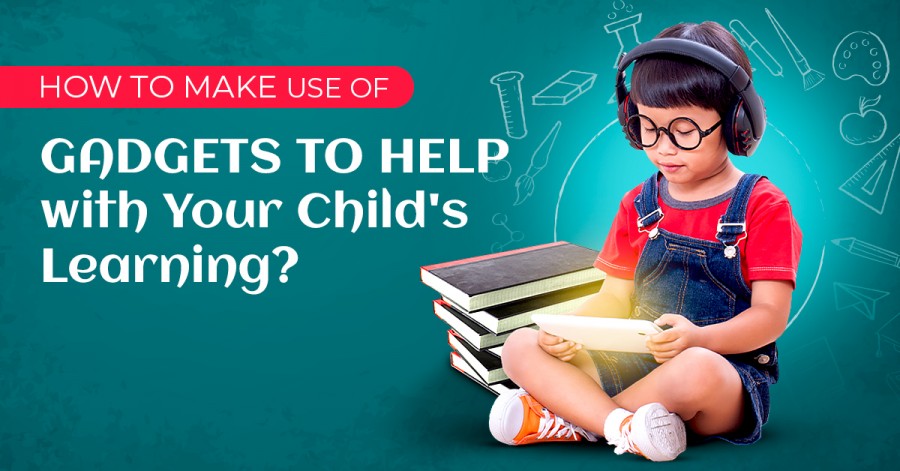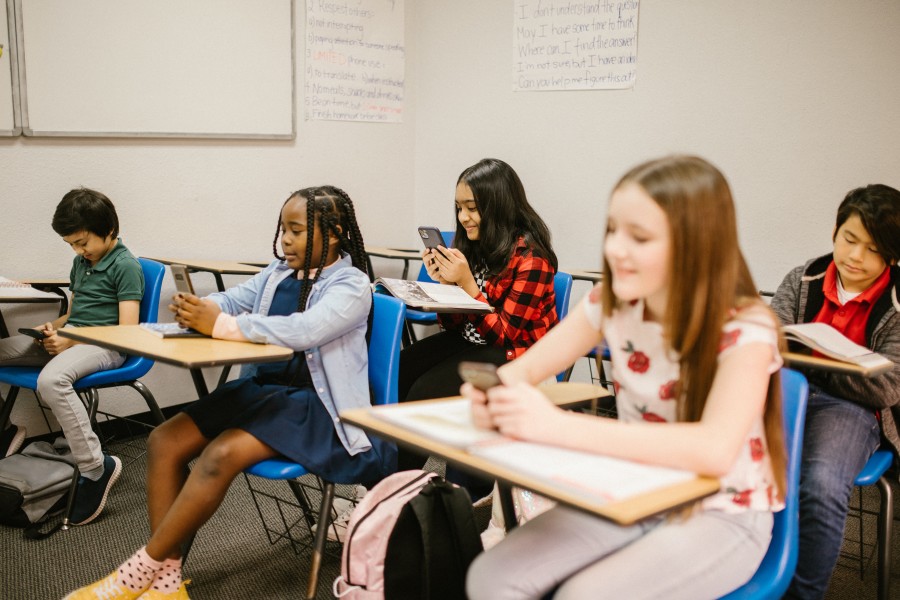How to Make Best Use of Gadgets to Help with Your Child's Learning
Published 26 July 2023 at 18:52
Tickikids Blog Singapore > Digest > How to Make Best Use of Gadgets to Help with Your Child's Learning

In a country as tech-obsessed as Singapore, there is simply no way a parent can keep their children from being exposed to smartphones and other devices. While many parents are rightfully worried about the pitfalls of constantly exposing children to technology, gadgets can also play a role in helping children’s intellectual and social growth.
With computers, phones, and tablets now as commonplace as they are, you may wonder how to make the best use of these to support your child's education. In this article, we will provide a few practical tips to help parents harness the potential of gadgets to promote effective learning while also avoiding the drawbacks associated with constant tech exposure.
Set Clear Usage Guidelines
Establish clear rules and guidelines regarding gadget usage with your child. Define specific times for device usage, such as during designated study periods or after completing homework. By setting boundaries, you’ll promote a healthy balance between screen time and other activities.
Avoid Giving Them Expensive Gadgets
Many parents understandably want to give their children the best things that they can afford. But when it comes to phones and other gadgets with educational value, parents should look at mid-priced or cheaper devices instead, for a few reasons.
First, children don’t understand the value of money and the gesture of giving them a high-end device will be lost on them. Second, cheaper phones and tablets are more than powerful enough to run any educational app you need. Third, and most importantly, most children will inevitably damage or lose their devices. Moreover, the device will likely be obsolete in a few years, and your child will have outgrown the device by then. Given all this, parents who want dedicated devices for their children should look at the selection of durable cheap phones Singapore online stores have in stock.
Encourage Educational Apps
Explore a wide range of educational apps suitable for your child's age and learning goals. Some apps can reinforce academic concepts while others are intended to improve critical thinking skills or enhance creativity. Encourage your child to use apps that assist them in areas they struggle with during designated screen time to make learning engaging and enjoyable.

Image Credit: Pexels
Utilise E-Books and Digital Libraries
Introduce your child to e-books and digital libraries that offer a vast and well-curated collection of educational content. Reading on gadgets can make books more accessible and interactive, particularly if the reader app has features like highlighting, dictionary lookups, and multimedia elements. Encourage your child to explore different genres to help stoke their imagination.
Engage in Collaborative Learning
When your child is old enough, promote collaborative learning experiences by using gadgets to facilitate virtual study groups or online forums. Importantly, encourage your child to interact with peers, share ideas, and seek help when needed. Their collaborations with others can foster teamwork as well as communication skills, ultimately helping your child be more open to diverse perspectives.
Embrace Virtual Tutoring
Consider utilising virtual tutoring platforms that connect students with qualified tutors in Singapore. Virtual tutoring sessions can provide personalised attention, address specific learning needs, and support your child's academic progress. Leveraging these tutoring platforms effectively may serve to enhance your child's understanding of challenging subjects and boost their confidence.
Explore Interactive Learning Platforms
Engage your child with interactive learning platforms that offer gamified educational experiences. These platforms combine educational content with game elements to make learning enjoyable and rewarding. Encourage your child to explore subjects like math, science, and foreign languages through interactive modules and quizzes.
Monitor Screen Time
While gadgets can be beneficial for learning, it's crucial to monitor and limit excessive screen time. Establish reasonable daily screen time limits based on your child's age and academic requirements. Regularly review and adjust these limits as needed to ensure a healthy balance between digital engagement and other activities.
Encourage Coding and STEM Activities
When your child is old enough, introduce them to challenging coding and STEM (science, technology, engineering, and mathematics) activities through smart devices. Encouraging participation in coding clubs or STEM workshops can further enhance their digital literacy as well as their future readiness.
Teach Them to Identify Good Information
Digital readiness involves more than just knowing how to run apps and use devices. It also means being able to discern reliable information from misinformation and knowing how to safeguard oneself online. Encourage them to explore reliable educational websites and teach them how to use search engines responsibly. Additionally, guide them in critically evaluating information sources, fact-checking, and citing references.
Promote Offline Learning Experiences
While gadgets can be valuable learning tools, it's arguably more important to promote offline learning experiences. To ensure that your child develops into a well-rounded individual, encourage them to engage in hands-on activities, outdoor exploration, and face-to-face interactions. Prioritising real-world experiences while still giving them access to online learning opportunities fosters holistic development and equips your child to handle different challenges that come their way.
Online Learning Can Supplement Real-World Education
By adopting a measured approach to device usage, parents in Singapore can ensure that technology supports their child's intellectual and social development. Following the ideas above, you can help your child avoid the pitfalls of overexposure to tech and empower them to develop crucial digital skills for the future.